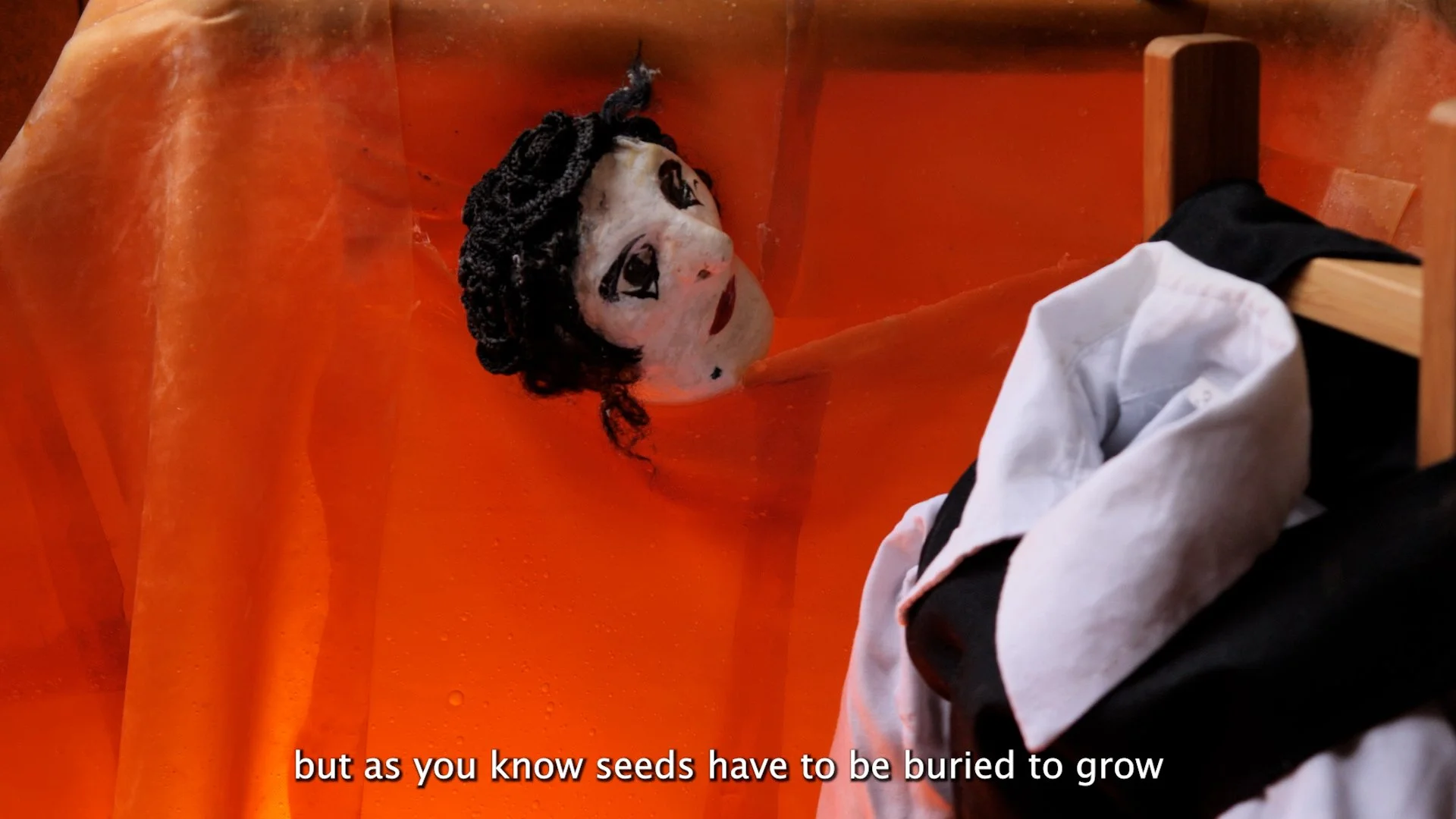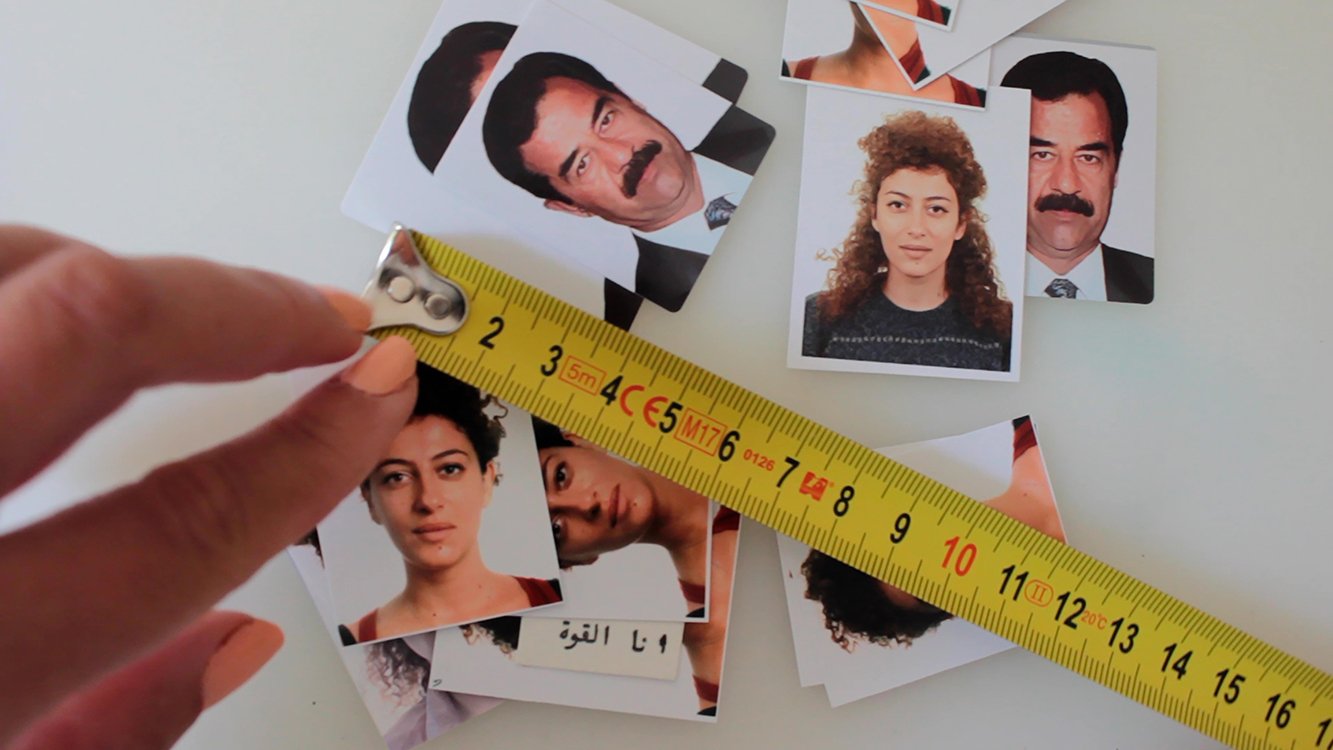Films
THE BATTLE OF EMPTY STOMACHS | 23’ | Experimental | 2024
Still shots from The Battle of Empty Stomachs, 23’18”, Experimental | 2024 | Winner of IFFR RTM Pitch Award
Synopsis
Based on research and interviews with both Palestinian hunger strikers and asylum seekers, this absurdist yet realist film stages a dialogue between the director and her mother tongue that centers on a single question: What do we know about hunger?
This film is a poetic and musical tribute to those who suffered the aftermath of famine and migration, and to Palestinian hunger strikers whose resistance outlives the deafening silence of the colonial world.
Screenings
IFFR world premiere, Raindance Film Festival UK Premiere, MAO, (Torino), BlackStar Film Festival USA Premier, Roffa Mon Amour, (Rotterdam), Kraljevski Film Festival (Serbia), San Giò Verona Video Festival (Italy)/ Tashweesh Beursschouwburg (Brussels), Tronto Arab Film Festival (Toronto), Darb 1718 (Cairo).
THE DISASTER CANNOT BE CONTAINED | 26’| Documentary | 2022
Still shots from The Disaster Cannot Be Contained, 26’48”, Documentary | 2022
Synopsis
Departing from the port of Rotterdam to that of Beirut, the Lebanese artist/filmmaker takes us on a journey through her feminist dream to work on a tugboat in the port of Beirut. A passion for ports and ships turns into a generational trauma due to the aftermath of the port Blast in 2020. The film offers an intersectional narrative and brings together questions of loss, distance, death, and the undead.
Screenings
IFFR world premier (Rotterdam), Kunstinstituut Melly (Rotterdam), Fetfilm Film Festival (Stockhom), Brutus (Rotterdam), Toronto Arab Film Festival, Morocco International Short Film Festival (Morocco), Off-Screen (Rotterdam), Best short film Award for the national competition in Beirut Shorts Film Festival (Beirut).
THE LAST SUPPER OR A CLASS IN HISTORY| 13’33” | experimental | 2022
Still shots from The Last Supper or a Class in History, 13’33”, Experimental | 2022
Synopsis
Set around an absurd dining table, The Last Supper or a Class in History unfolds at the intersection of the language of food politics, religious symbolism, and capitalist class hierarchies. The film explores linguistic parallels between theology and capitalism—such as the use of “doomsday” to describe the Svalbard Global Seed Vault, or “seed bank,” a term that mirrors financial banking systems of accumulation and control. It asks: if doomsday took the form of famine, who owns the seeds in global seed banks? Who plants them? And what would it mean to return the power to those historically dispossessed—peasants, custodians of embodied knowledge of land and cultivation?
Drawing conceptual parallels with Jumana Manna’s Wild Relatives, the film reflects on top-down structures of power, ownership, and the politics of survival.
Screenings
Gemaal Op Zuid (Rotterdam) Solo Exhibition
ON SCALES OF VIOLENCE: HOW TO MEASURE A DICTATOR? | 12’ | experimental | 2021
Still shots from Ons Scales of Violence: How to Measure a Dictator?, 12’, Experimental | 2021
Synopsis
This film relies on an intersectional feminist autoethnographic research, demonstrating how through 90s TV broadcast news, dictators leaked out of the TV and affected vertically the Patriarchal gaze in family units. The film gets interrupted in the process of its making by the violence that erupted in Palestine in May 2021, in which the Israeli settler colonial state was forcibly displacing Palestinians out of their homes in Sheikh Jarrah, Silwan, Beita, and Lifta, as it had for 7 decades. Palestinians revolted, which resulted in an 11-day war on Gaza that killed 243 civilians among them 67 children.
The film changes its course, as students in the Dutch art institute “Piet Zwart Institute” voice their stance in Solidarity with Palestine and get censored and silenced by the institution.
Screenings
PZI Graduation show, Rotterdam, W139 Amsterdam.
ASPECT RATIO | 2’ | experimental | 2020
Still shots from Aspect Ratio, 2’08”, Experimental | 2020
Synopsis
Visual artist Diana Halabi measures the scale of dictator Saddam Hussein - who her father was going to name her after - and compares him with the scale of her passport pictures. She visually explores the varying scales of systematic violence, with particular attention to the domestic (through monotonous repetition; chanting) and the relational aesthetics of hierarchies in history.
Screenings
Cairo Video Festival (Cairo), Shasha Movies: Women’s Revolt program (Online)















